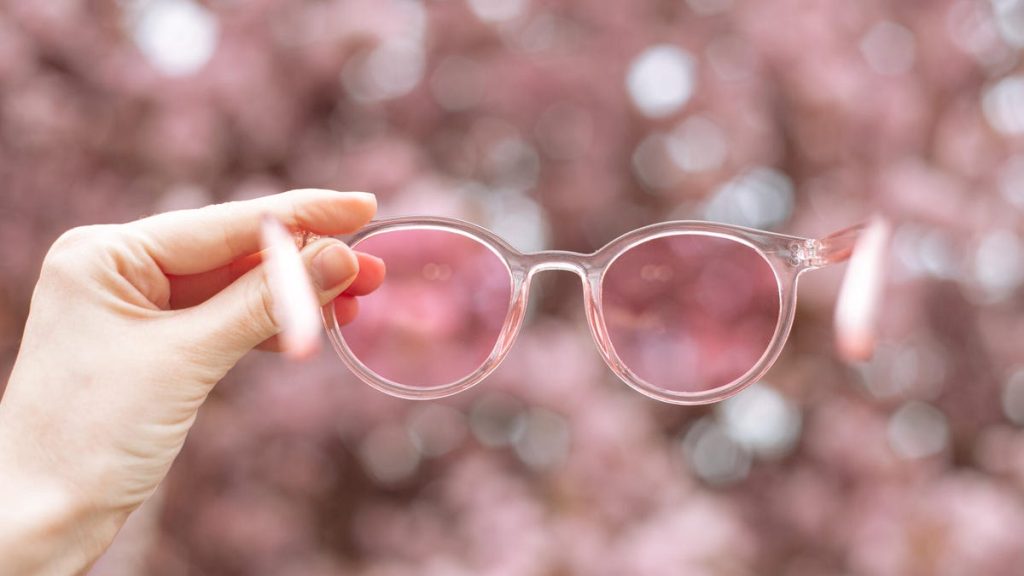The color of your sunglass lenses can impact how sunlight filters through, and different tints can offer varying benefits depending on the activity or task you are engaged in. Brown or amber lenses are common and are great for everyday use as they help protect the eyes from glare and enhance warm colors. They provide high contrast, making objects appear sharper and more defined, making them ideal for sports and outdoor activities like hunting and golfing. Yellow or orange-tinted sunglasses are perfect for moderate to low-light conditions, enhancing contrast and clarity, making them helpful in foggy or hazy weather. Blue or purple-tinted lenses reduce glare in bright conditions and improve color perception, making them suitable for water sports and snow activities. Green lenses improve color perception, reduce glare, and brighten shadows, making them versatile for various outdoor activities.
Pink or red-tinted lenses are great for depth perception and offer high contrast against white backgrounds, making them popular for winter sports. Gray sunglasses provide a neutral color perception and reduce brightness without distorting colors, making them versatile and suitable for everyday wear in a wide range of situations. When choosing sunglasses, factors beyond color and style are important, such as lens coating, material, and frame material. Polarized lenses reduce glare, while mirrored or flash coatings enhance visual comfort. The most critical factor is UV protection, which is essential for preventing eye conditions like cataracts or cancer. A combination of these factors tailored to specific situations helps determine the best sunglasses for optimal eye safety and comfort.
It is not advisable to wear red or pink-tinted lenses while driving, as they may not be suitable for road visibility. It is important to consider the specific tasks or activities you will be engaging in when choosing sunglasses, as different lens tints offer varying benefits. Sunglasses with brown or amber lenses are great for outdoor sports that require clear vision and high visual acuity. Yellow or orange-tinted lenses are ideal for low-light conditions, enhancing contrast and clarity. Blue or purple-tinted lenses are perfect for reducing glare in bright conditions and improving color perception, making them suitable for water sports and snow activities. Green lenses are versatile, improving color perception, reducing glare, and brightening shadows for various outdoor activities.
Pink or red-tinted lenses are beneficial for depth perception and contrasts against white backgrounds, making them popular for winter sports. Gray sunglasses offer a neutral color perception and reduce brightness without distorting colors, making them suitable for everyday wear in various situations. When choosing sunglasses, it is important to consider factors like lens coating, material, frame material, and UV protection to ensure optimal eye safety and comfort. Polarized lenses reduce glare, while mirrored or flash coatings enhance visual comfort. By taking these factors into account, you can find the best sunglasses to protect your eyes and enhance your vision in different settings.


